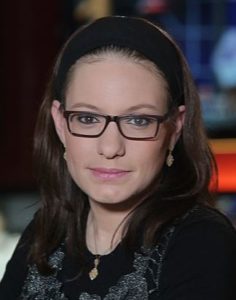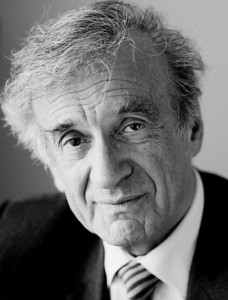Israel’s Favourite News Anchor – and Rebbetzin
 Sivan Rahav (b. 1981) was born in Herzliya to a secular family. She knew she wanted to be a journalist from childhood, and would already interview her friends in second grade. By 8, she earned herself a “children’s press” card, and by 14 was interviewing the likes of Yitzhak Rabin and Shimon Peres. Meanwhile, Rahav used her journalistic skills to dig into her roots, and soon returned to Orthodox observance. After finishing high school early, she completed her degree in political science from Tel-Aviv University in just two years, then served in the IDF as a military reporter. During this time, she met her future husband, a fellow Orthodox IDF reporter, Yedidya Meir. The two still work on their biggest stories together – Yedidya hosting a show on Radio Kol Chai and writing for the B’Sheva newspaper, and Sivan hosting a show on Galei Tzahal (Army Radio), writing for Yediot Ahronot (Israel’s largest newspaper), and hosting Channel 2’s prime-time television news hour. During her last maternity leave (after giving birth to her fifth child), she realized she was tired of the negativity and politics of news, and decided to devote more time to spreading positive, spiritual Jewish wisdom. She started giving weekly Torah classes in Jerusalem and Tel-Aviv, which now draw over 1000 people in packed venues. A master of social media, her Torah thoughts regularly reach over a million listeners through Facebook, Instagram, WhatsApp, Twitter, and YouTube. Rahav-Meir also published a bestselling book on the weekly parasha, translated into English last year. In addition to recently being voted Israel’s favourite female news personality, she has become one of Israel’s most successful kiruv speakers, and a tremendous role model for all baalei teshuva. Rahav-Meir is making waves in the world of Israeli journalism, too, and helping to stem the long-standing anti-religious bias of the secular Israeli media. “For secular reporters,” she says, “Judaism was always a problem. But I wanted to talk about it as a solution.”
Sivan Rahav (b. 1981) was born in Herzliya to a secular family. She knew she wanted to be a journalist from childhood, and would already interview her friends in second grade. By 8, she earned herself a “children’s press” card, and by 14 was interviewing the likes of Yitzhak Rabin and Shimon Peres. Meanwhile, Rahav used her journalistic skills to dig into her roots, and soon returned to Orthodox observance. After finishing high school early, she completed her degree in political science from Tel-Aviv University in just two years, then served in the IDF as a military reporter. During this time, she met her future husband, a fellow Orthodox IDF reporter, Yedidya Meir. The two still work on their biggest stories together – Yedidya hosting a show on Radio Kol Chai and writing for the B’Sheva newspaper, and Sivan hosting a show on Galei Tzahal (Army Radio), writing for Yediot Ahronot (Israel’s largest newspaper), and hosting Channel 2’s prime-time television news hour. During her last maternity leave (after giving birth to her fifth child), she realized she was tired of the negativity and politics of news, and decided to devote more time to spreading positive, spiritual Jewish wisdom. She started giving weekly Torah classes in Jerusalem and Tel-Aviv, which now draw over 1000 people in packed venues. A master of social media, her Torah thoughts regularly reach over a million listeners through Facebook, Instagram, WhatsApp, Twitter, and YouTube. Rahav-Meir also published a bestselling book on the weekly parasha, translated into English last year. In addition to recently being voted Israel’s favourite female news personality, she has become one of Israel’s most successful kiruv speakers, and a tremendous role model for all baalei teshuva. Rahav-Meir is making waves in the world of Israeli journalism, too, and helping to stem the long-standing anti-religious bias of the secular Israeli media. “For secular reporters,” she says, “Judaism was always a problem. But I wanted to talk about it as a solution.”
Words of the Week
The media is seeking instances where religion is excessive, extreme… I think the media doesn’t cover the real things that are happening. Take selichot, for example: Every year 100,000 people come to the Kotel for the last night of selichot. The Kotel plaza is full [but it’s not covered in the news], yet when an old band comes to sing in Ramat Gan’s park and draws 1,000 or 10,000 people, the media will livestream the event and the reporters will be there…
– Sivan Rahav-Meir

